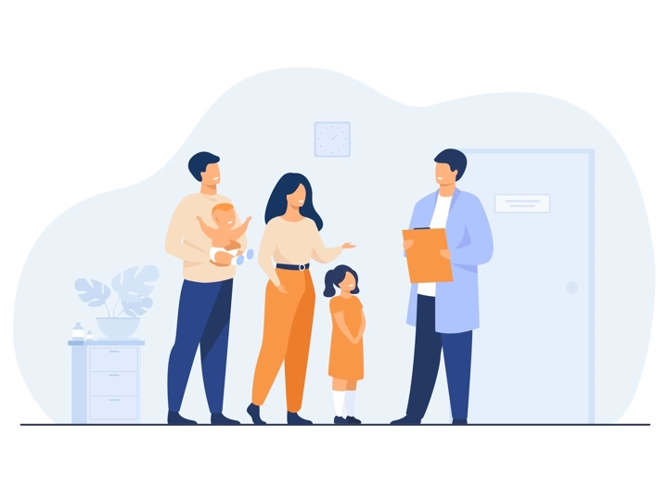
Essential Guide to Family Reunification in Germany
Essential Guide to Family Reunification in Germany
Family Life in Germany: The Ultimate Guide for Expats and Foreigners
Introduction
Are you feeling overwhelmed by the thought of moving your family to Germany? Maybe you’re worried about the language barrier, the maze of paperwork, or simply how to keep your loved ones together in a new country. You’re not alone: thousands of expats each year face these same challenges. At liveingermany.de, we’ve guided countless expats through the twists and turns of German bureaucracy, family reunification, and everyday life. This comprehensive guide is designed to demystify the process, offer practical solutions, and help you build a stable, happy family life in Germany—backed by official sources and real expat experiences.
Expat Challenges and Context
The Emotional Journey: Bringing Your Family Together
Imagine arriving in Germany, excited for new opportunities, only to find yourself tangled in red tape while your family is thousands of kilometers away. For many expats, family reunification is the most stressful part of moving. The process can feel impersonal and daunting, especially when every requirement—proof of income, language certificates, housing contracts—carries the weight of your family’s future.
According to the German Federal Office for Migration and Refugees, family reunification is one of the most common reasons for residence permit applications among non-EU citizens. Yet, expats frequently report confusion over eligibility, documentation, and the timeline for bringing spouses and children to join them. The emotional impact is real: separation anxiety, uncertainty, and the pressure to “get it right” can be overwhelming.
But there is good news. Germany offers a clear, well-structured path for family reunification, and with the right preparation, you can navigate this journey with confidence.
Comprehensive Guidance with Expertise
Family Reunification & Visas: What You Need to Know
Who Needs a Family Reunion Visa?
If you’re a non-EU/EEA or non-Swiss citizen, you’ll typically need a family reunion visa (National Type D Visa) before your family can join you in Germany. Eligible applicants include spouses and dependent children of German citizens or residents with a valid permit. Nationals from countries like the US, UK, Canada, and Australia enjoy simplified procedures and can apply after arrival.
Key Requirements for Family Reunification:
| Requirement | Spousal Reunification | Children Reunification |
|---|---|---|
| Marriage/Civil Partnership | Must be legally married/partnered | N/A |
| Minimum Age | Both must be at least 18 | Child under 16: No age limit; 16-18: Special conditions (source) |
| German Language | Basic (A1) knowledge required | Not required for children under 16 |
| Financial Stability | Must prove ability to support family | Same applies |
| Residency Status | Sponsor must have secure residency | Same applies |
| Health Insurance | Adequate coverage required | Same applies |
Children over 16 face extra requirements, and those over 18 must apply for their own residence title. There should be no legal grounds for expulsion for any applicant, and children joining parents must be unmarried (source).
Application Process:
- Apply at the German mission in your home country or, for eligible nationalities, after arrival (source).
- Submit proof of marriage/relationship, adequate living space, financial support, insurance, and language skills (if required).
Visa Validity and Conversion:
- The family reunion visa is valid for 3–12 months and must be converted to a residence permit after arrival (source).
- Costs are typically around €75.
Life for Families in Germany
- Education: School attendance is mandatory from age 6 to 18, with high-quality public and private options.
- Healthcare: Health insurance is mandatory, and dependents are usually covered under family policies.
- Parental Support: Generous parental leave (Elternzeit), child benefit (Kindergeld), and subsidies for childcare are available.
- Integration Courses: Free or subsidized language and integration courses help non-German-speaking family members settle in (source).
Actionable Steps for Expats and Foreigners
- Check Eligibility: Confirm your relationship and sponsor’s residency meet requirements.
- Prepare Documents: Gather certificates, proof of income, housing, health insurance, and language certificates.
- Apply for Visa: Submit your application at the consulate/embassy or locally if eligible.
- Plan Arrival: Register your address, obtain health insurance, and convert your visa to a residence permit before expiry.
- Integrate: Enroll children in school, join integration courses, and tap into community resources.
Verified as of May 2025. For more details, see Germany Visa, Make It in Germany, and AXA Schengen.
Explore More Family-in-Germany Resources
Verpflichtungserklärung Process in Germany
The obligation letter, or Verpflichtungserklärung, is a crucial document if you want to invite friends or family to Germany for a short-term visit. This comprehensive guide explains the purpose, costs, and validity of the letter, along with essential requirements for the sponsor—such as financial criteria and documentation. It also clarifies the difference between an obligation letter and an invitation letter and offers practical steps for applying and tips for staying compliant with German authorities. If you’re planning to bring family over for a visit, understanding this process is key to a smooth visa application. Read more
Inviting Family and Friends to Germany
Thinking of inviting your loved ones to Germany? This article covers the entire process, from obtaining a visitor visa to writing the perfect invitation letter. It breaks down the different types of invitation letters (private, business, tourism, family visits) and the specific requirements for each. You’ll learn what information to include, what documents are necessary, and how to navigate the bureaucracy for a successful family visit. This guide is essential for anyone looking to reunite with family or friends—even for a short stay. Read more
Getting Married in Denmark Guide
Many expats choose Denmark as a destination to get married due to its streamlined process. This guide provides all the information you need: reasons for marrying in Denmark, eligibility, required documents, costs, and how to register your marriage in your home country. It also covers legal aspects and common pitfalls to avoid. If you’re considering marriage as part of your family journey in Germany, this article can help you avoid bureaucratic headaches and ensure your marriage is legally recognized. Read more
Essential Steps When Leaving Germany
Leaving Germany involves more than just booking a flight. This article outlines all the steps you need to take: informing your employer, notifying your landlord, canceling insurance policies, terminating contracts, deregistering from authorities, and handling memberships. It emphasizes the importance of planning to avoid financial and legal issues, such as unpaid bills or tax complications. If your family’s journey in Germany is coming to an end, this resource will ensure a smooth transition. Read more
Re-entry Certificate for Germany
If you plan to stay outside Germany for an extended period, you might need a Re-Entry Certificate to keep your residence permit valid. This guide explains the regulations, the importance of notifying the Foreign Office, and the documentation required—especially for specific visa types like the EU Blue Card. Understanding these rules is vital for families who travel frequently or have members living abroad temporarily. Read more
City Registration Process in Germany
Registering your address (Anmeldung) is one of the first and most important bureaucratic steps after arriving in Germany. This guide details how to book appointments, what documents you need, and the consequences of not registering on time. It also covers changes of address and deregistration. Proper registration is crucial for accessing services like bank accounts, SIM cards, and internet—making this a must-read for newly arrived families. Read more
Navigating Bureaucracy in Germany
German bureaucracy can be daunting, but this resource breaks down the complexities and offers step-by-step guidance. With the help of LiGa, a chatbot that answers your questions about official processes, you can tackle paperwork with confidence. The article covers a range of topics relevant to expats and families, providing clarity and support in dealing with German authorities. Read more
Practical Tips for Expats: Family Life in Germany
- Start Early: Begin preparing your documents and researching requirements months before your planned move. Delays often occur due to missing paperwork or incomplete applications.
- Learn Basic German: Even a little German (A1 level) can make a big difference in navigating bureaucracy and daily life. Apps like Babbel or Busuu are great for beginners.
- Secure Health Insurance: Health insurance is mandatory and often required for visa applications. Compare providers and understand what’s covered for your family.
- Register Promptly: Complete your Anmeldung (city registration) within two weeks of arrival to access essential services and avoid fines.
- Engage in Integration Courses: Take advantage of free or subsidized language and integration courses to build a support network and ease your family’s transition.
- Reflective Question: What’s the biggest challenge you anticipate for your family’s move—paperwork, language, or something else?
Contextual Affiliate CTAs
Need a reliable health insurance provider for your family? Try Ottonova Consultation, Germany’s digital private insurance made for expats. Get started.
(Affiliate link – we may earn a commission at no extra cost to you.)
Looking for an expat-friendly bank account? N26 offers convenient, online banking in English—perfect for internationals. Open an account.
(Affiliate link – we may earn a commission at no extra cost to you.)
Want to improve your German quickly? Babbel German app offers practical lessons for real-life situations. Try Babbel.
(Affiliate link – we may earn a commission at no extra cost to you.)
Conclusion
Family life in Germany can be rewarding and well-supported, but it requires careful planning and understanding of the rules. By preparing early, leveraging expert resources like liveingermany.de, and staying proactive about integration, you can ensure a smooth transition for your loved ones. Remember, you’re not alone—thousands of expats have successfully navigated these steps, and with the right guidance, so can you.
Live in Germany is a trusted resource for expats, with guides used by thousands. All information is verified as of May 2025 and sourced from official German government websites and trusted expat resources.
Sources:
- Germany Visa: Family Reunion
- Make It in Germany: Family Reunification
- AXA Schengen: Family Reunification Visa
- German Federal Office for Migration and Refugees
- All blog resources linked above.








![Elterngeld in Germany [Parental Allowance]](https://liveingermany.de/images/elterngeld-in-germany/detailed-guide-about-parental-benefits-elterngeld-in-Germany-with-all-info.svg.webp-668w.webp)





